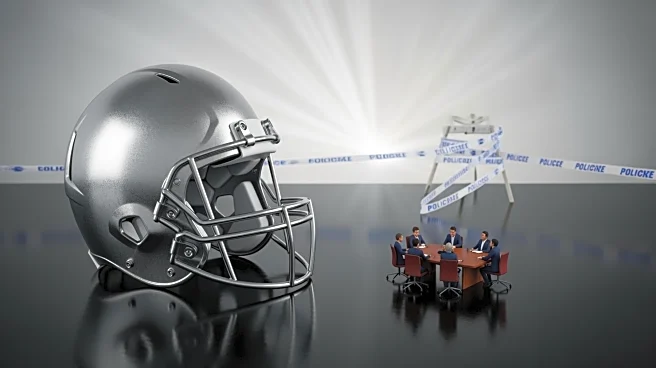What's Happening?
George Atkinson, a former safety for the Oakland Raiders known for his aggressive style of play, has died at the age of 78. Atkinson was a key member of the Raiders' 'Soul Patrol' secondary during the 1970s,
contributing to the team's first Super Bowl victory. He played 144 games over his career, primarily with the Raiders, and was renowned for his physicality on the field. Atkinson's career included 33 interceptions, ranking him fourth all-time for the Raiders. He was part of a notable draft class in 1968 that helped establish the Raiders as a dominant force in the NFL. Atkinson's family informed the Raiders of his passing, but the cause of death was not disclosed.
Why It's Important?
George Atkinson's passing marks the loss of a significant figure in NFL history, particularly for the Raiders organization. His style of play and contributions to the team helped shape the Raiders' identity during a pivotal era. Atkinson's aggressive approach to football exemplified the physical nature of the sport during the 1970s, influencing how the game was played and perceived. His legacy continues to impact the Raiders, as he remained connected to the organization long after his playing days. The news of his death also highlights ongoing discussions about player safety and the long-term health effects of football, as Atkinson had previously reported symptoms consistent with CTE.
What's Next?
The Raiders organization and the NFL community are likely to honor Atkinson's contributions to the sport and his impact on the team. Tributes and memorials may be planned to celebrate his life and career. The discussion around player safety and the effects of CTE may gain renewed attention, as Atkinson's experiences reflect broader concerns within the sport. The Raiders may also continue to support initiatives that address these issues, honoring Atkinson's legacy by advocating for player health and safety.
Beyond the Headlines
Atkinson's career and life story also touch on personal tragedies, as both of his sons died by suicide in recent years. This aspect of his life may prompt further exploration into the mental health challenges faced by athletes and their families. The NFL and other sports organizations may use this moment to emphasize the importance of mental health support for players and their families, potentially leading to increased resources and awareness.










